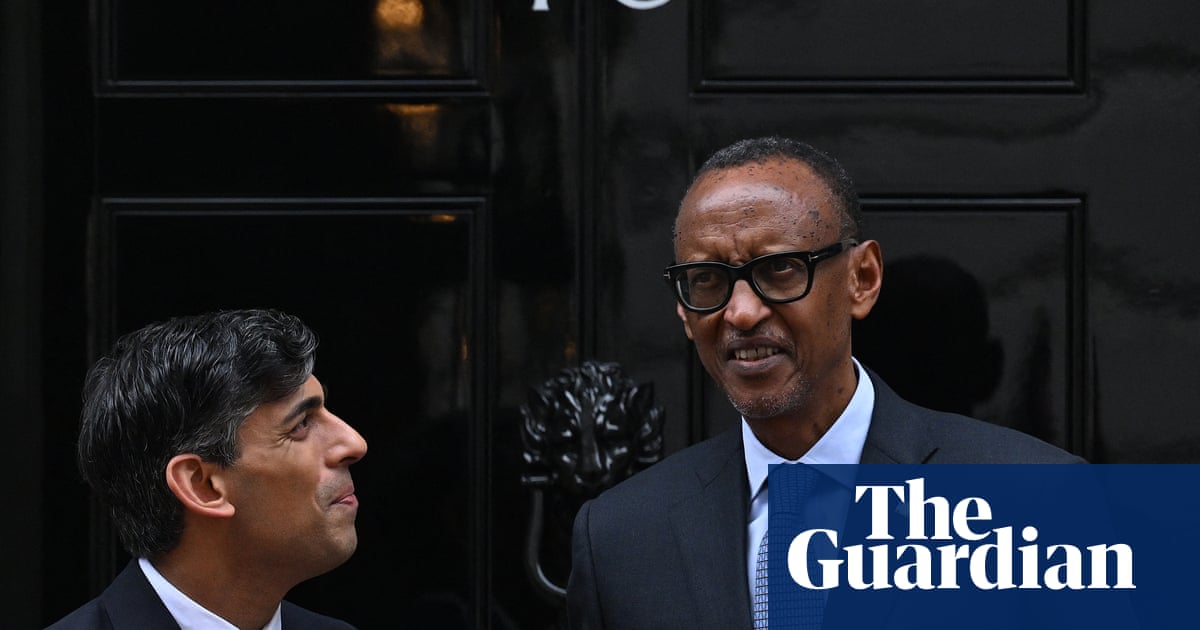
Rishi Sunak’s plan to send asylum seekers to Rwanda took a step forward on Monday night after MPs voted overwhelmingly to throw out a series of amendments made to the Rwanda bill by the House of Lords.
MPs voted down all 10 amendments made by peers over the past few weeks to return the bill to the form in which it was initially passed by the Commons in January, giving a much-needed boost to the beleaguered prime minister.
The safety of Rwanda (asylum and immigration) bill, which is designed to overcome the supreme court’s objections to the plan, will return to the Lords later this week. Peers will then have to decide whether to reinsert their amendments and slow down the bill’s passage once more.
Speaking before the votes on Monday, Sunak said: “I am still committed to the timeline that I set out previously, which is we aim to get a flight off in the spring.”
The rejection of the amendments provides some welcome relief for the prime minister after a difficult few weeks that culminated over the weekend in speculation that Penny Mordaunt, the Commons leader, could be lining up a bid to replace him before the election.
Sunak has urged his party to keep faith with his leadership, promising on Monday that 2024 “will be the year Britain bounces back”.
He is hoping that a combination of falling inflation, accelerating growth and the long-awaited start to his Rwanda plan will help boost the Tories’ flagging poll ratings later in the year.
However, the asylum plan relies on MPs and peers agreeing a version of the bill in the coming weeks so that ministers will have the power to ignore any emergency injunctions issued by Strasbourg aimed at stopping flights taking off.
Among the 10 amendments peers have made to the bill in recent weeks was one that would have forced ministers to abide by domestic and international law. Others included preventing the government from declaring Rwanda a safe country until Kigali implements a series of safeguards it has promised, and exempting those who have worked with the British armed forces abroad from being deported to the African country.
Labour, the Scottish National party and the Liberal Democrats voted to keep all 10 amendments. But they were defeated by a relatively united Tory party, with the majority voting against all 10.
After the debate, Labour MP Clive Lewis apologised for swearing in the Commons chamber and said his “outburst” was not directed at anyone in particular.
The Norwich South MP told the Commons: “I’d like to put on record, if I could, my apologies to the chamber, to members [of parliament] and members of staff, for an earlier outburst I had.
“If I could very quickly explain, I received a message which caused me some consternation and surprise, to which I made an outburst in general at no one specifically.
“If I could do it again I’d probably have said something like ‘my giddy aunt’, rather what did come out of my mouth, and for that I apologise. But just to clear the air and put on record the fact that it was directed at no one in particular.”
The deputy speaker, Sir Roger Gale, who earlier said it had been alleged an MP had sworn at a doorkeeper, said: “I appreciate the honourable gentleman’s candour in identifying himself and the fullness of the nature of his apology, which is accepted.”
Opening the debate on Monday afternoon, Michael Tomlinson, the minister for illegal migration, told the Commons: “This bill is an essential element of our wider strategy to protect our borders and to stop the boats, to prevent the tragic loss of lives at sea caused by dangerous, illegal and unnecessary crossings across the Channel.”
He added: “I don’t accept that the provisions of the bill undermine the rule of law, and the government takes its responsibilities and its international obligations incredibly seriously. There’s nothing in the bill that requires any act or omission which conflicts with our international obligations.”
Officials say that if the Lords chooses to add in more amendments, it is unlikely to pass until Easter. Even then, however, they believe they will still hit the spring deadline.
A Downing Street official said: “The timeline remains unchanged, whether the bill is passed before or after Easter.”












